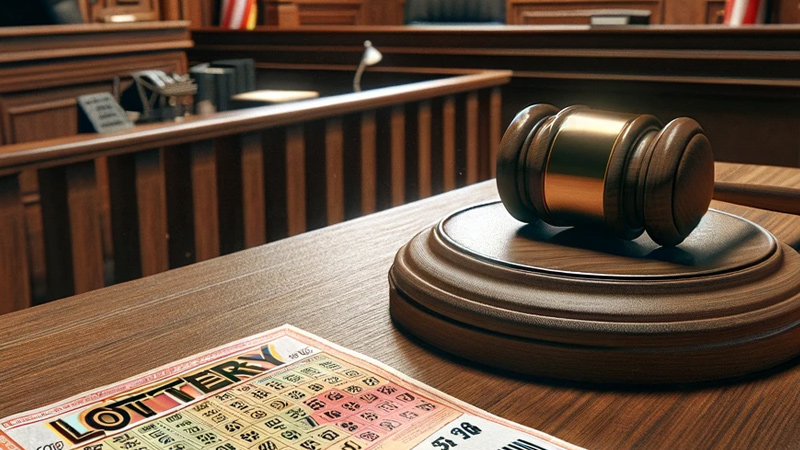Maine Lottery Winner Sues Mother of His Child for Disclosing $1B Win

The biggest jackpot winner in the history of the Maine Lottery is now involved in a family lawsuit.
The $1.35 billion winning lottery player, known is court documents as “John Doe,” is suing his ex-partner for allegedly violating a nondisclosure agreement (NDA).
He alleges she revealed his Mega Millions jackpot win to his family, as well as others. Doe reportedly wants $100K for each individual his ex, also the mother of his child, talked to about the win.
The Dispute Over Confidentiality
The plaintiff, identified only as John Doe for privacy reasons, accuses his ex, referred to as “Sara Smith,” of breaching an NDA when she disclosed his lottery win to his father and stepmother.
This agreement was initially put in place to safeguard the safety and security of Doe, Smith, and their daughter, and to prevent the media or the public from discovering their identities and physical location.
Maine technically does not allow anonymity for lottery winners. But lawyers have found a workaround in many cases by suggesting winning clients claim the prize via a limited liability company or LLC, which would ensure privacy.
Doe’s lawsuit seeks an injunction to prevent Smith from making any further disclosures about his lottery win. Additionally, he requests the court to compel Smith to list every individual she informed about the prize and pay compensatory damages. He also demands coverage for all reasonable attorney fees, expenses, and court costs incurred in the legal proceedings.
The Winning Ticket
The winning ticket was purchased at Hometown Gas & Grill in Lebanon, Maine, in January 2023.
In this case, Doe claimed a one-time payment instead of the full prize of $1.35 billion in yearly sums. He did so through LaKoma Island Investments LLC.
That meant a lump sum of $723,564,144 before taxes, or around $400 million once taxed.
Despite remaining anonymous, local news outlets have reported that some residents of Lebanon (population 6000) have joked with journalists about tracking down the lottery winner.
The Legal Implications
This case highlights the unique challenges faced by lottery winners, particularly in states where anonymity is not permitted. The use of NDAs and other legal measures reflects the growing concerns among lottery winners about privacy, security, and the potential impacts of sudden wealth on personal relationships.
Interestingly, and somewhat predictably, it is not the first time a U.S. lottery winner has been involved in a familial lawsuit drama.
In 2019, Gloria Mackenzie scooped a $228 million jackpot prize on the Florida lottery at age 84. However, she eventually took her son to court over claims he mismanaged and misappropriated the money once granted power of attorney due to her old age.
Unfortunately, Mackenzie died in 2021 before the outcome of her lawsuit could be decided.
Across the country, the California lottery winner who bagged the biggest U.S lottery prize has also been involved in legal proceedings over the ownership of the ticket.
Edwin Castro hit the $2 billion jackpot in February, only to be sued by Jose Rivera, who claimed to be the rightful owner.
Recent updates in the case suggest Castro can prove he owns the ticket, and that the plaintiff, Rivera, may actually end up facing police charges over the false claims.











